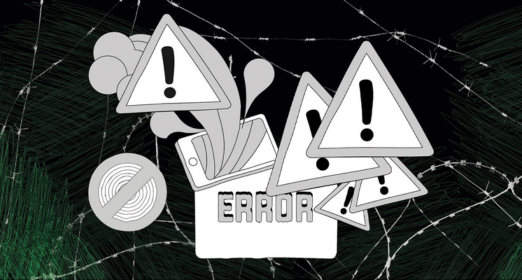Information democracy
Powerful companies and governments control the way the internet and new technologies are deployed. These actors blur the lines on corporate power in ways that have tremendous impact on people and democracies. The dominant business model of ‘Big tech’ platforms is based on surveillance, polarization and power imbalances. This ‘surveillance capitalism’ has had a global impact on democracy. For example, state and private actors can use the internet and technologies to spread political disinformation, to manipulate electoral results, to attack human rights defenders and to limit civic space.
Filter resources
-

EDRi-gram, 29 May 2024
What an exciting few weeks we have ahead of us – the European Parliament elections are just around the corner and much is about to change. The next time you read the EDRigram, we will have new decision-makers in place at the Parliament. But before we jump too far ahead into the future, here’s what’s been happening in the digital rights world since we last met. EDRi member La Quadrature du Net is taking legal action against the French prime minister’s decision to block TikTok in New Caledonia. The French government is resorting to the tried-and-tested authoritarian reflexes of obstructing people’s freedom of expression as tensions in the archipelago reach new heights. In this EDRigram, we’re also getting real about EU’s surveillance agenda, and looking at how to enforce the General Data Protection Regulation (GDPR) in a way that realises its full potential.
Read more
-

Between policy and reality: EDRi’s assessment of the implementation challenges in the troubled Terrorist Content Online Regulation
Since its enactment nearly two years ago, the so-called ‘Terrorist Content Online Regulation’ has faced scrutiny over its implementation and effectiveness. The EDRI network has contributed insights to the European Commission's Call for Evidence for its evaluation. We expressed significant concerns regarding potential violations of fundamental rights and the efficacy of its enforcement measures, advocating for the withdrawal of the regulation in favour of one that genuinely guarantees respect for fundamental rights.
Read more
-

The new EU Commission must address information power
Ahead of the European Parliament elections, ARTICLE 19 shares its recommendations for the new European Commission, urging it to strive for a more open information environment across the EU.
Read more
-

La Quadrature du Net takes legal action against the French government’s censorship of TikTok in New Caledonia
Through an emergency proceeding (reféré-liberté) filed last week, La Quadrature du Net asked the Conseil d’État (Council of State) to suspend French Prime Minister Gabriel Attal’s decision to block the TikTok platform in New Caledonia. With this censorship order, the French government struck an unprecedented and particularly serious blow to freedom of expression online, which neither the local context nor the toxicity of the platform can justify in a regime pretending to abide by the rule of law.
Read more
-

Digital futures for all
In recent years, protecting and advancing digital rights feels like a never-ending battle as more and more of our lives get entangled with the digital world. Challenges to our freedoms online and offline continue to pile up as we face tech corporations with ginormous budgets and states with carte blanche to do anything for ‘national security’ reasons.
Read more
-

EDRi-gram, 2 May 2024
Last week, the European Parliament was doing everything everywhere all at once in the run up to the final plenary before the June EU elections. Let’s run through some of the highlights. In a disappointing move that will endanger medical secrecy, the European Parliament passed the European Health Data Space (EHDS). This law will expose everyone’s medical records to unnecessary security and privacy risks in the name of research and “innovation”. The Parliament also took its final step on the much touted Artificial Intelligence (AI) Act last week. With the final version of the law full of loopholes and missed opportunties, we’re left to contend with how to keep advocating for the protection of peope’s rights and fight against biometric mass surveillance. We also directed our attention towards the European Commission’s concerning decision to allow unrestricted data flows to Israel. Together with Access Now and 11 other civil society groups, we wrote to the Commission to ask for clarity on this decision.
Read more
-

EDRi-gram, 17 April 2024
But what knocked everyone's socks off was the massive victory in Greece, where EDRi member Homo Digitalis' strategic complaint led to a record-breaking fine to the Ministry of Asylum and Migration for violating people's data protection rights in its border management systems KENTAUROS and HYPERION. This news from Greece, immediately followed by the European Parliament's vote on the European Union's asylum system (EURODAC), makes it irrefutable that the Migration Pact is the EU's attempt to codify in law surveillance practices that not only gravely harm the rights of migrants but which are illegal.
Read more
-

Packed with loopholes: Why the AI Act fails to protect civic space and the rule of law
The European Parliament approved the AI Act on 13 March 2024, thus marking the end of a three-year-long legislative process. Yet to come are guidelines and delegated acts to clarify the often vague requirements. In this article, ECNL takes stock of the extent to which fundamental rights, civic space and the rule of law will be safeguarded and provide an analysis of key AI Act provisions.
Read more
-

EDRi-gram, 3 April 2024
After our light-hearted April Fool’s edition, it’s time to get down to brass tacks. In this issue, we delve into the European Court of Justice’s landmark decision declaring the EU regulation on fingerprint IDs invalid—a significant victory. We’re also peeling back the layers of the Artificial Intelligence Act, offering you an in-depth look at the legislation’s intricacies and its implications for your digital rights. Furthermore, we shine a spotlight on the concerning trends in surveillance expansion and disinformation spread across Eastern partnership countries.
Read more
-

EDRi-gram, 20 March 2024
On March 13, following years of tireless advocacy, the EU Parliament finally passed the Artificial Intelligence (AI) Act. But there’s not much to celebrate – the law missed the mark when it comes to protecting our human rights, especially those of migrants and people on the move. On the same day, the Parliament also passed the European Media Freedom Law (EMFA) which aims to protect journalists and media workers. Another legislation with lofty ambitions that did not live up to its goals. Despite the Brussels spyware scandal that shocked up in February 2024, EU’s approach to surveillance technology remains lackadaisical at best. What will finally convince them to take action?
Read more
-

Meta must act: stop the systematic censorship of Palestinian voices
Meta’s continuous censorship of Palestine-related content in times of war is a systematic issue that the tech giant must immediately address. Access Now’s new report, It’s not a glitch: how Meta systematically censors Palestinian voices, delves into how the company silences the voices of Palestinians and those advocating for their rights on Facebook and Instagram.
Read more
-

EDRi-gram, 06 March 2024
On 17 February, one of the landmark digital laws, the Digital Services Act, in the European Union came fully into force. Now, you've got a whole bunch of fantastic online rights at your fingertips. But don't worry, we've got your back! Our friends at Bits of Freedom have whipped up a shiny new website packed with easy-peasy actions to help you understand and flex those digital rights muscles like a pro. But wait, there's more! We're thrilled to introduce you to our new Head of Policy, Ella Jakubowska. Ella takes up this role from her previous EDRi position as Senior Policy Advisor, where she led advocacy on facial recognition, the confidentiality of online communications, age verification and more. She’ll be spending the coming months listening and learning, so please get in touch if you’d like to talk all things digital rights policy.
Read more
